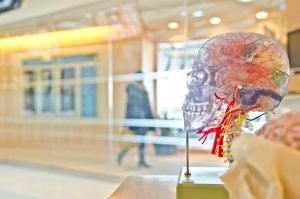Even though we can legally drink at age 21, our brains continue to grow well into our mid-twenties. For weeks to months after ceasing heavy drinking of alcohol, a teenager’s brain will still have difficulty working properly. Any use of illicit substances or alcohol before this three-pound organ is fully formed can interfere with its development. Drugs and alcohol affect how neurons direct, collect, and understand information.
Among other drugs, heroin and cannabis can stimulate neurons in our brain. Since these substances have similar chemical structures to the natural ones our body makes, drug use can lead to abnormal messages being transmitted within our brains. The activation of these neurons is not the same when stimulated by an organically produced chemical versus a synthetic one.
Other substances, such as stimulants, can increase the number of natural neurotransmitters that are released. They can also disrupt transporters by getting in the way of the typical recycling of these neurotransmitters in the brain.
Parts of the Brain Effected by Substance Use
Drinking alcohol and using cannabis, opiates, and other illicit substances have a major impact on our minds. These changes to important areas of our brain can set us up for an active addiction, as the alterations lead to compulsive behaviors. The longer we keep using or drinking during active addiction, the quicker the drugs and alcohol become the main priority in our brains. Some areas of our minds impacted when we drink or use drugs include:

- The basal ganglia: This part of our brain affects our motivation to do things that are pleasurable in our lives: eating, sex, and being around friends and family. It helps us to develop habits and practices. Since this part of our brain houses our “reward circuit,” and drugs over stimulate the basal ganglia, our brain begins to lose please in anything other than the drug. Thus, a desire for more and more of the identified substance begins to be needed in to achieve a sense of reward.
- The extended amygdala: Stressful emotions (nervousness, grouchiness, unease, fear, etc.) are formed in this area of the mind. These same emotions surround withdrawal from alcohol and drugs. The desire for more and more increases each time we seek to find our choice substance, and our sensitivity to the substance decreases with every use. We begin to engage in use to decrease the discomfort we are feeling rather than to get the sensation of being high or drunk.
- The prefrontal cortex: The prefrontal cortex is the last area of our brain to develop. Rationalizing, planning, and problem-solving occur in this space of our mind. The prefrontal cortex aids in impulse control.
- The brain stem: Opioids and other substances have effects on our brain’s core functions, such as sleeping, heart rate, and breathing. This partially explains why death occurs from drug and alcohol overdoses.
Help to Start Healing Your Brain Today
At Discovery Place of Burns, Tennessee, we have trained professionals that can aid in your recovery process. We have been rated as 4.9 out of 5 stars from friends of alumni, graduates, and family members of past clients of our various alternative treatment programs. Help your brain start to heal today! Don’t just take our word for it. Call us at 1-800-725-0922.

